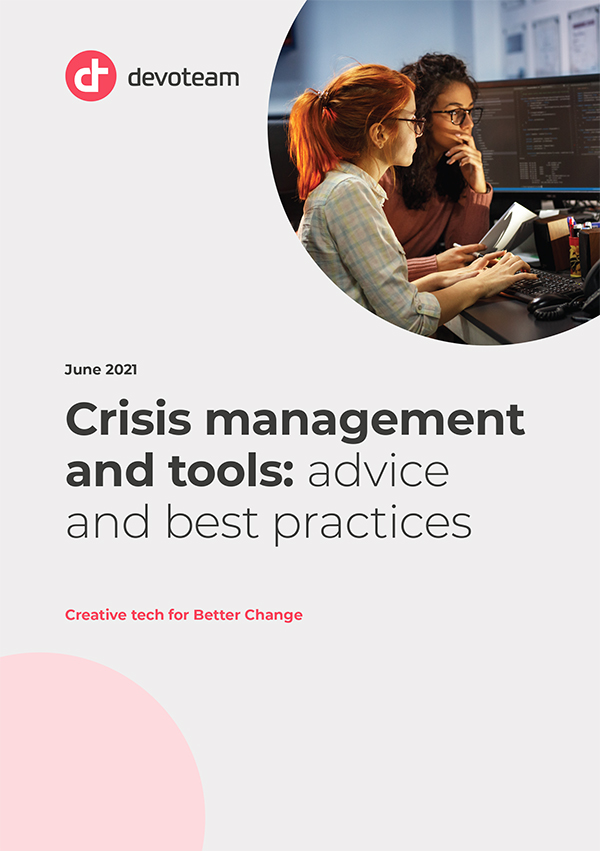Our aim here isn’t to compare the merits of one tool against another – the internet is already a goldmine of similar information.
When considering the right crisis management tool for your business, it’s critical to understand how it can help improve and speed up your response, while ensuring the smooth flow of all processes to minimise any operational impact.
For example, if there are two key people holding the fort and accessing a large Excel file, a tool could be very useful. Not only could it free up at least one of them to focus on other priorities, it will also reduce the margin of error.
In this scenario, let’s imagine the tool automatically logs all crisis-related activity and actions, keeping an all-important record which can be presented to the authorities in the event of a post-crisis audit. In addition to their time-saving benefits, crisis management tools allow for more precise preparation and greater precision of the actions.
Preparation is key to any crisis and, as with any resource, it’s essential your team has mastered the tool’s capabilities for your business to be crisis-ready. This means ensuring relevant team members are fully versed in the software’s functionalities, with regular exercises so they are clear how to benefit from its crisis-management features when it matters most.
